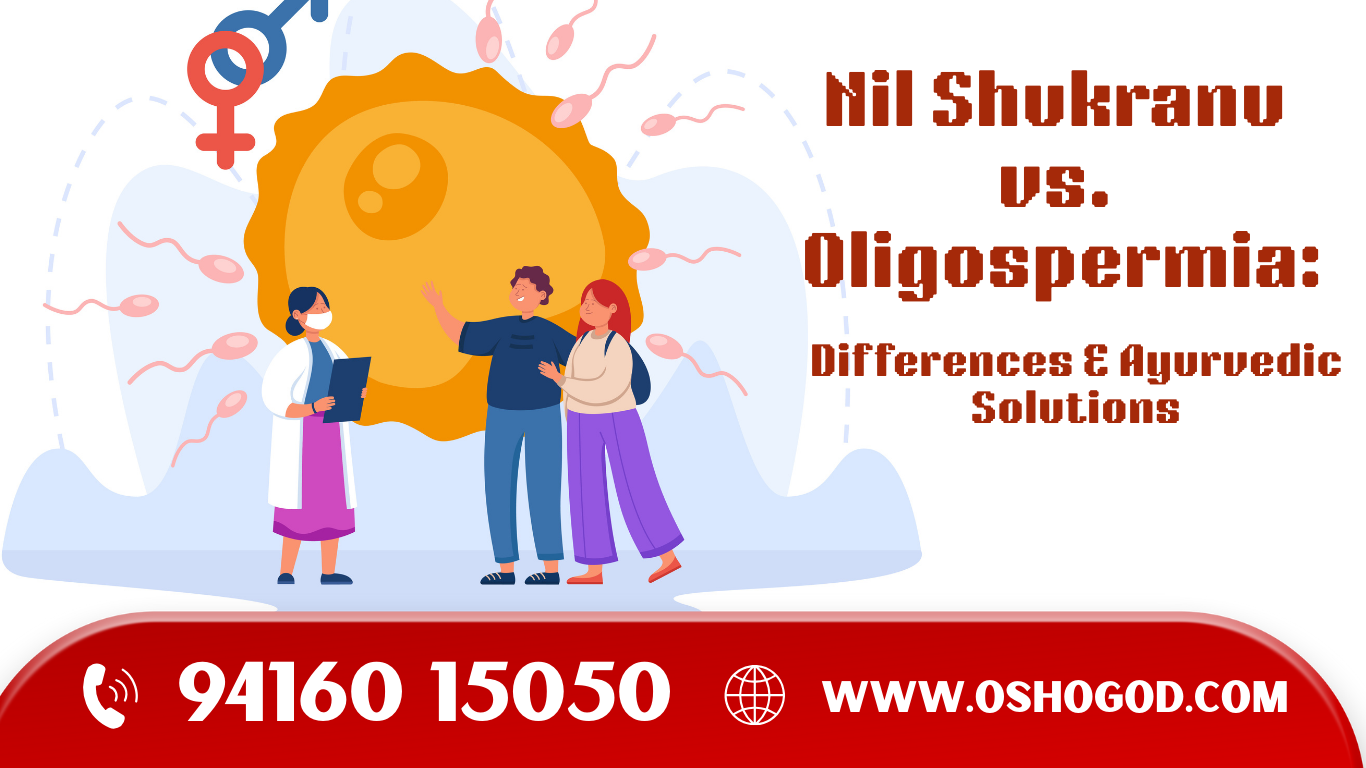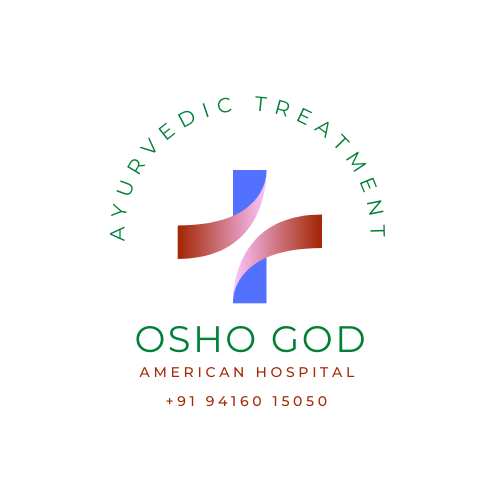- admin
- 0 Comments
Nil Shukranu vs. Oligospermia: Differences & Ayurvedic Solutions
Male infertility is a growing concern, often diagnosed when couples struggle to conceive. Two common but different causes are Nil Shukranu (Azoospermia) and Oligospermia (Low Sperm Count). Understanding how they differ is key to finding the right solutions—especially the natural, holistic care offered by Ayurveda at American Hospital Ambala Cantt.
Nil Shukranu (Azoospermia): What Does It Mean?
Nil Shukranu, also called azoospermia, means a complete absence of sperm in semen. This is one of the most severe forms of male infertility, with two main types:
- Obstructive Azoospermia: Sperm is produced but cannot exit due to blockages.
- Non-obstructive Azoospermia: The testicles don’t produce sperm, often because of hormonal, genetic, or lifestyle issues.
Common Causes:
- Hormonal imbalances
- Genetic disorders (such as Klinefelter Syndrome)
- Past infections (mumps, STDs)
- Lifestyle factors (smoking, alcohol)
Oligospermia: Understanding Low Sperm Count
Oligospermia means the sperm count in semen is below normal levels, typically less than 15 million sperm per milliliter. While some sperm are present, the chances of fertilizing an egg decrease, especially if the sperm are also of poor quality.
Symptoms may include:
- Reduced energy and libido
- Sexual weakness
- Difficulty in conception
Main Causes:
- Hormonal imbalances
- Varicocele (swollen veins in the scrotum)
- Infections
- Poor lifestyle (obesity, stress, unhealthy diet)
Nil Shukranu vs. Oligospermia: Key Differences
Feature | Nil Shukranu (Azoospermia) | Oligospermia |
Sperm in semen | Absent | Reduced (<15 million/ml) |
Fertility impact | Severe, natural conception not possible | Reduced chances, but sometimes possible |
Main causes | Blockage or lack of sperm production | Low production, poor motility |
Diagnosis | Semen analysis (no sperm found) | Semen analysis (low count found) |
Ayurvedic Solutions at American Hospital Ambala
Ayurveda offers holistic and effective solutions for both conditions, focusing on restoring natural fertility using herbs, therapies, diet, and lifestyle corrections.
Ayurvedic Approach for Nil Shukranu
- Balancing hormones (testosterone, prolactin)
- Detoxification therapies (Panchakarma, such as Virechana & Basti)
- Herbal remedies: Ashwagandha, Shatavari, Kaunch Beej, Gokshura, Safed Musli
- Diet: Nuts, seeds, milk, ghee, greens
- Lifestyle: Stress reduction, yoga, avoiding toxins
Ayurvedic Approach for Oligospermia
- Vajikarana therapy: Boosts sperm production and sexual energy
- Herbal Supplements: Siddha Makar Dwaj, Shivalingi beej, Chandraprabha vati, Shilajit
- Detoxification & rejuvenation: Panchakarma, yoga, pranayama
- Diet: Fresh fruits, nuts, healthy fats
Real Results: Why Choose American Hospital Ambala?
Thousands of couples have regained hope and achieved natural pregnancy through personalized Ayurvedic care—even after failed IVF/IUI cycles elsewhere. Our team utilizes pulse diagnosis, expert consultation, and authentic Ayurvedic medicines tailored to each patient.
Ready to consult?
📞 Call ++91 94160 15050 to discuss your case and start your journey to parenthood.
Conclusion
Both Nil Shukranu and Oligospermia are significant but different obstacles to male fertility. At American Hospital Ambala, expert Ayurvedic solutions address the root causes, offering hope for natural, healthy conception. If you’re facing these challenges, contact us today for a confidential consultation.
📞 Call Now:+91 94160 15050
📍 Location: American Hospital, 4996, Kasera Bazar Rd, Sadar Bazar, Ambala Cantt, Haryana, India – 133001
🌐 Visit: https://oshogod.com

